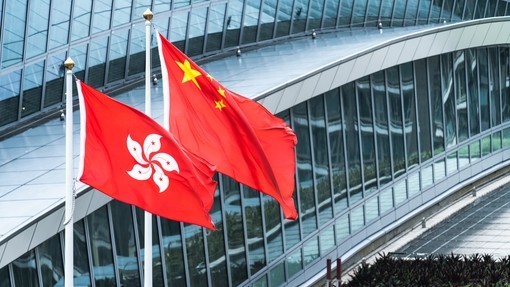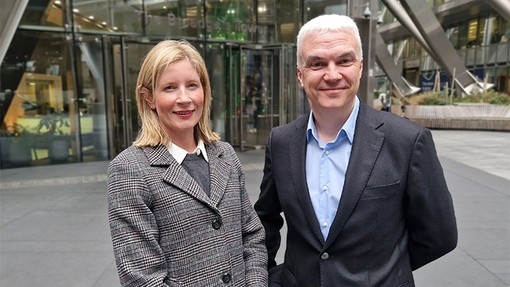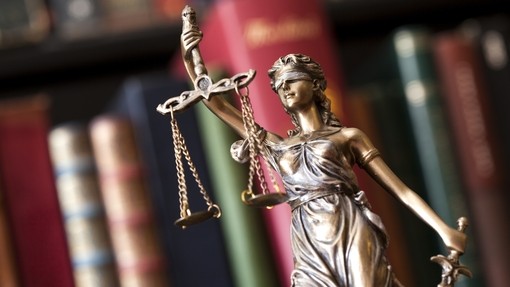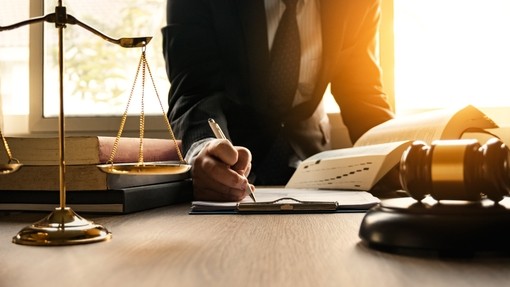Fair trials, proving your case and uncontroverted expert evidence

Fair trials, proving your case and uncontroverted expert evidence
TUI UK Ltd -v- Griffiths [2023] UKSC 48
This was a relatively low-value personal injury claim which would not in normal circumstances have gone as far as the Supreme Court. However, it raised a point of general importance, with regard to the rule that if a party wishes to challenge the other side’s factual or expert witness evidence, it should do so by cross-examining that witness.
The aim of the rule is to achieve a fair trial. The reason being that a witness whose evidence is being challenged should be given the opportunity to explain any contradiction or alleged problem with their evidence.
Following this decision, it is clear that if a defendant to a claim considers it is disproportionate to obtain its own expert evidence to counter that relied on by the claimant, but nonetheless wants to impugn that expert evidence, it would be well-advised to: (i) put focused written questions to the expert pursuant to CPR 35.6 that address the matters it is seeking to challenge; and/or (ii) call the claimant’s expert for cross-examination at trial.
The background facts
The claimant bought an all-inclusive family package holiday from the defendant tour operator. He developed gastric problems while on the holiday in Turkey and was diagnosed at a local hospital as suffering from acute gastroenteritis. He was treated with intravenous fluids and antibiotics. Tests showed multiple pathogens, both parasitic and viral.
The claimant continued to suffer from gastric problems after he returned home, was still suffering from some symptoms at the time of the trial and it was anticipated that his condition was likely to be permanent.
Wood -v- TUI
Wood -v- TUI [2017] EWCA Civ 11 is worth noting because it was one of the cases relied on by the defendant in these proceedings, being a claim for gastroenteritis suffered during an all-inclusive package holiday.
In that case, the defendant expressed a concern that it should not be liable for every stomach upset that occurred on an all-inclusive package holiday it provided. Members of the Court of Appeal agreed that it could not simply be inferred from the mere fact of illness that it was caused by food or drink consumed at the hotel. The claimant had to prove that that was in fact the cause of his illness.
The witness evidence
According to the evidence of the claimant and his wife, the claimant ate only at the Turkish hotel while on holiday, apart from a pre-flight meal at the airport and one meal in town after he became ill and when he had gone to town with his wife to get medicine from the pharmacy. Both the claimant and his wife complained of the hygiene standards at the hotel. The trial judge accepted their evidence.
The expert evidence
Pre-trial, the Court gave the parties permission to rely on expert evidence from a gastroenterologist and a microbiologist. The claimant did so. The defendant failed to serve a report from a gastroenterologist within the time specified and was refused relief from sanction. The defendant declined to serve its microbiologist’s report, which addressed causation. The defendant did serve witness statements but did not call or cross-examine its witnesses with the result that their evidence was discounted.
As the defendant did not seek to have the claimant’s microbiologist attend the trial for cross-examination, his evidence was accepted on paper. It was, therefore, uncontroverted in the sense that it was not in conflict with any other evidence at the trial and had not been challenged in cross-examination.
The defendant did, however, put CPR 35.6 questions to both the claimant’s experts. The answers to these questions formed the basis of the defendant’s criticism of the expert microbiologist’s evidence in the defendant’s skeleton argument and in counsel’s submissions at trial.
The lower court decisions
The trial judge criticised both expert reports submitted by the claimant and also the experts’ answers to the CPR 35.6 questions. She held that the claimant had not proved his claim and dismissed it. Among other things, the judge thought that: the expert reports did not deal with the matters that the Court of Appeal in Wood -v- TUI specified they should cover in such cases; in some respects, they did not comply with the Practice Direction to CPR 35 in failing to supply a range of opinion; and it was not clear why the pre-flight meal or the meal in town were discounted in favour of the hotel food being the more likely cause.
On appeal, the High Court overturned this decision and found in the claimant’s favour. The Court distinguished this case from Wood -v- TUI on the basis that the claimant was not relying on the mere fact of illness to establish his claim but also on the evidence of potential pathogens revealed by the laboratory tests done at the local hospital. In the Court’s view, the expert report fulfilled the minimum standards required by CPR PD 35 and, as it was uncontroverted, should be accepted.
The Court of Appeal, by a majority, reversed this decision and reinstated the trial judge’s decision. The majority view was that there was nothing inherently unfair in challenging the expert evidence in closing submissions. Nugee LJ summarised that trial judges had to evaluate all the evidence, including uncontroverted expert evidence, and decide what weight to give to that evidence in reaching their conclusions on the factual issues. It was held that there is no strict rule that prevents the Court from accepting uncontroverted expert evidence which complied with CPR PD 35 where it had not been challenged by contradictory evidence and where there was no cross-examination. The majority, therefore, agreed with the trial judge’s criticisms of the expert report. However, Bean LJ provided a strongly worded dissent. Bean LJ was of the view that the defendant should have challenged the claimant’s microbiologist expert evidence by cross-examination rather than reserving criticisms of the expert microbiologist evidence until closing submissions. By doing the latter, the claimant did not have a fair trial.
The Supreme Court decision
The Supreme Court allowed the claimant’s appeal and restated the general rule in civil proceedings, which is that if a party does not challenge in cross-examination the evidence of any witness of the opposing party, it is unlikely to succeed in its attempts to have the Court reject that evidence. Fairness, particularly a fair trial, required the witness to be given the chance to respond to any criticism made of any part of his evidence.
The rule was not inflexible and there were circumstances in which it would not apply. The Supreme Court listed seven non-exhaustive exceptions, based on past cases:
- The issue in dispute is collateral or insignificant so there is no unfairness if the witness is not given the opportunity to respond;
- The factual evidence is manifestly incredible and an opportunity to explain on cross-examination would make no difference;
- There is a bold assertion of opinion in an expert report without any reasoning to support it;
- There is an obvious mistake on the face of an expert report;
- The witnesses’ evidence of the facts might contradict the basis on which the expert expressed his view in the expert report;
- The expert has had sufficient opportunity to defend any criticism of his report or to clarify any point in issue without the need for cross-examination (for example, by way of CPR 35.6 questions); and
- The expert report fails to comply with the requirements of CPR PD 35.
In this case, the defendant called no witnesses of fact, failed to lodge its gastroenterologist’s expert report within the deadline and decided not to rely on its own microbiologist’s report, which might have put forward a different case on causation. The CPR 35.6 questions did not focus on the issues that the defendant sought to criticise in the claimant’s expert microbiologist report, so the expert was not on notice of those criticisms. The defendant then did not seek to call the claimant’s microbiologist expert for cross-examination and by the time the challenges were made in counsel’s skeleton and submissions, it was too late to do anything about them.
While the expert report left many questions unanswered and could have benefitted from more expansive reasoning, this was a relatively low-value claim, and the report could not be described as a bare assertion on causation. In the absence of a proper challenge on cross-examination, it was therefore not fair for the Court to accept the defendant’s criticisms of the report.
It was held that the trial judge and the majority of the Court of Appeal erred in law in a significant way. They did not consider the effect on the fairness of the trial of the defendant’s failure to cross-examine the claimant’s microbiologist expert. Therefore, the Supreme Court made its own assessment of the evidence and concluded that the claimant had established his case on the balance of probabilities. In doing so, the Supreme Court took into account the factual findings made by the trial judge (based on the witness evidence of the claimant and his wife), the claimant’s microbiologist expert report and the answers to the CPR 35.6 questions.
The Supreme Court stated that this case was different to Wood -v- TUI, because here the microbiologist expert had the benefit of the claimant’s laboratory test results and there was also a basis in the factual evidence for inferring that, on the balance of probabilities, the likely cause of the illness was the consumption of food or drink at the hotel.
The appeal was, therefore, allowed.
Comment
The defendant expressed concern that if the appeal was upheld, this outcome would have adverse consequences for resolving low-value holiday sickness claims cost-effectively. However, the Supreme Court thought that a defendant could challenge an inadequately reasoned expert report without obtaining its own expert report if it was disproportionate to do so. It could test the expert’s evidence more economically by making sure its CPR 35.6 questions were focused and clearly articulated the challenges it wished to make so that the expert could address them in writing without the need to cross-examine him.
Alternatively, where the defendant instructs an expert, a meeting of both parties’ experts in advance of trial might narrow the areas of dispute and even result in a joint experts’ report restricting the issues in dispute.
Whether this is the case remains to be seen. However, what is clear from this judgment is that a defendant must consider its stance on the claimant’s expert evidence at an early stage, and ensure they are proactive in terms of the stance they take. Asking focused Part 35.6 questions can assist defendants with this, and in addition help defendants consider whether, even in low value cases, they will need to obtain their own expert evidence to contradict the claimant’s expert evidence.





